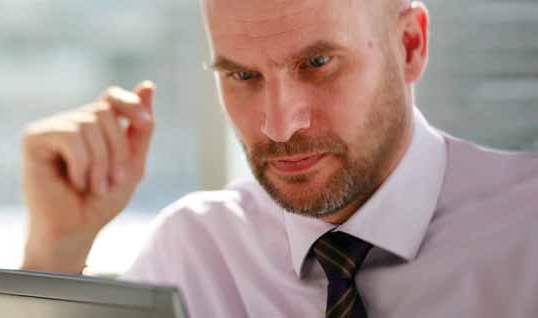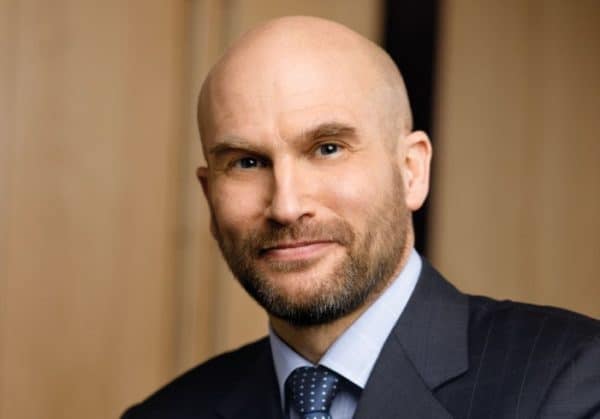

Broadcasters everywhere receive thousands of signals every day, but these signals are not always in the same format. Montreal’s Miranda Technologies (TSX:MT) converts them into a single homogeneous HD signal standard. Miranda’s solutions also continue through to the software stage, where broadcasters process the feed prior to airing.
Ever watch your favorite sitcom and see the star of another show pop up in the corner pointing to his program’s logo? That’s Miranda. Miranda’s President and Chief Executive Officer, Strath Goodship, cut his teeth at Leitch Technology, a Toronto based broadcast technology company that became a de facto university to many of Canada’s best and brightest in the space before it was acquired by Harris Corporation in 2005.
Goodship was Director of Engineering at Leitch from 1986 to 1990, and Michel Proulx, Miranda’s Chief Technology Officer also worked there. Cantech Letter’s Nick Waddell talked to Goodship about his company’s beginnings and the subsequent two decades in which Miranda itself has become a worldwide leader in broadcast technology infrastructure and a homegrown success story.
Strath, the first thing I want to ask you about is Leitch. It’s now been nearly six years since the company was acquired by Harris. I notice all sorts of Leitch alumni active with broadcast technology these days, including yourself and Fred Godard from International Datacasting. Do you look back fondly on your Leitch days?
(Laughs) Do I look back fondly? I haven’t been asked that question in a long time. Absolutely. I joined in 1986, I think it was and at the time it was run by Bob Lehtonen, who was a great mentor and a real entrepreneur. He taught me and many of my peers how to do business in the space. I very much remember my time there fondly and I still have a lot of friends from that time, including our CTO Michel Proulx, who joined Leitch just about the same time and left just about the same time, so we have been working together for twenty-five years and that was the start of it, at Leitch.
There seems to be a lot of cross-pollination between Leitch alumni. There’s Sensio, Gennum, Evertz, International Datacasting, many of whom have shared projects. I know that all these companies are competitors of yours in one sense, but there seems to be a spirit of cooperation and a bit of, for lack of a better word, a “scene” that has developed after Leitch was acquired…
That’s probably fair. If you actually look at it on a worldwide basis, there are two areas of the world where companies have multiplied in the broadcast space, one is the UK and the other is Canada. My personal theory is that the BBC and the CBC, during the sixties and seventies and into the eighties put a lot of money into research and we are now the second or third generation that has benefited from all that research that went out to industry in the seventies and eighties and as those corporations cut back on their engineering departments, companies were formed. Jimmy Leitch had worked with Bob Lehtonen at the CBC in the sixties and they founded Leitch in 1971. You could say that Miranda, Evertz, Ross and a number of other companies have been spawned from Leitch. But a lot of it dates back to the CBC, and it’s very similar in the UK and there is, as you say, a spirit of cooperation between us because of that shared heritage.
So our tax dollars are working for us, then….
(Laughs) I think it’s an area that Canadians should be proud of. There must be other industries like this, I think ours is so niche that it’s hard to shout about it. You can’t say it’s uniquely Canadian, but it’s very Canadian and throughout the world people expect a Canadian company to be among the best in this space.
So let’s get back to Miranda. Could you explain to our readers what sub-sector of broadcast technology that Miranda has a lot of core expertise with? What is really driving your growth?
We have many many products. essentially the bulk of our products are present in the infrastructure of what we call master control. So it’s really the area of a broadcast station that aggregates the content, puts graphics and all sorts of metadata with the signal and puts it out the door. So we don’t encode as it goes out the door, we don’t have the transmitters, but that master control room that is almost like the cockpit, if you will, of the television station that’s where most of our products reside and we cover most of the ground there. So that involves a lot of hardware and software products. It’s essentially anything to do with converting the format of signals coming in, it’s monitoring the signals and they are coming in and going out, its aggregating advertising content with prime content, it’s putting real time graphics over that content, and it’s also a lot of ancillary data that travels with the television signals that we are responsible for encoding and going out the door. So that’s it. What is driving us? Well as you can imagine television is changing pretty quickly, it has gone to HD in the last five years, so a lot of that infrastructure has had to not only support standard definition channels, it has had to deal with the growth of HD channels. Now broadcasters are having to compete in all sorts of new ways, they are having to generate content for more than just real time viewing, they are having to generate for what we call non-linear viewing or on-demand viewing and that same master control area is responsible for that as well. So part of our driver is helping broadcasters make those changes to HD, to non-linear delivery.
Is the day coming when there is a single HD signal standard? I’ll be watching sports highlights of say a English Premier League soccer game or NBA basketball and the highlights aren’t in HD. It drives me crazy!
There’s all sorts of things you will find. There’s a lot of local stations in the US where most of the content is now finally HD, but then you switch to the ads and they’re all SD. and it just looks terrible. But it takes years and years to do this, and then there is a lot of old programming that is in SD. When you are watching highlights that are in still in SD, well it’s possible that the particular organization that was responsible for generating the highlights, that’s the only equipment they had at the time so they haven’t converted yet. In fact we believe that the US is probably only fifty-percent converted to HD, and the rest of the world is behind that. So there’s still lots and lots more to do, and you just need one point in that direction chain that’s not HD, it’s in SD and you’re going to see it on your television screen. So it’s just a matter of time. There is, in fact, really one standard for HD. That’s not really the problem. it’s just that not all the components in the chain are converted.
By the way, If feel like one of the real victims in all this. I used to have 250 channels I could watch and now I can only watch 20, because I can’t watch anything that’s not in HD.
That’s completely classic! We actually love that because it means that HD is really sticky and it really encourages broadcasters and cable operators to switch to HD and that means more sales for Miranda. That’s good! I’m the same, by the way. I think most HD consumers are like us.
For Part Two of Cantech Letter’s interview with Strath Goodship of Miranda Click here…
Leave a Reply
You must be logged in to post a comment.




 Share
Share Tweet
Tweet Share
Share




Comment